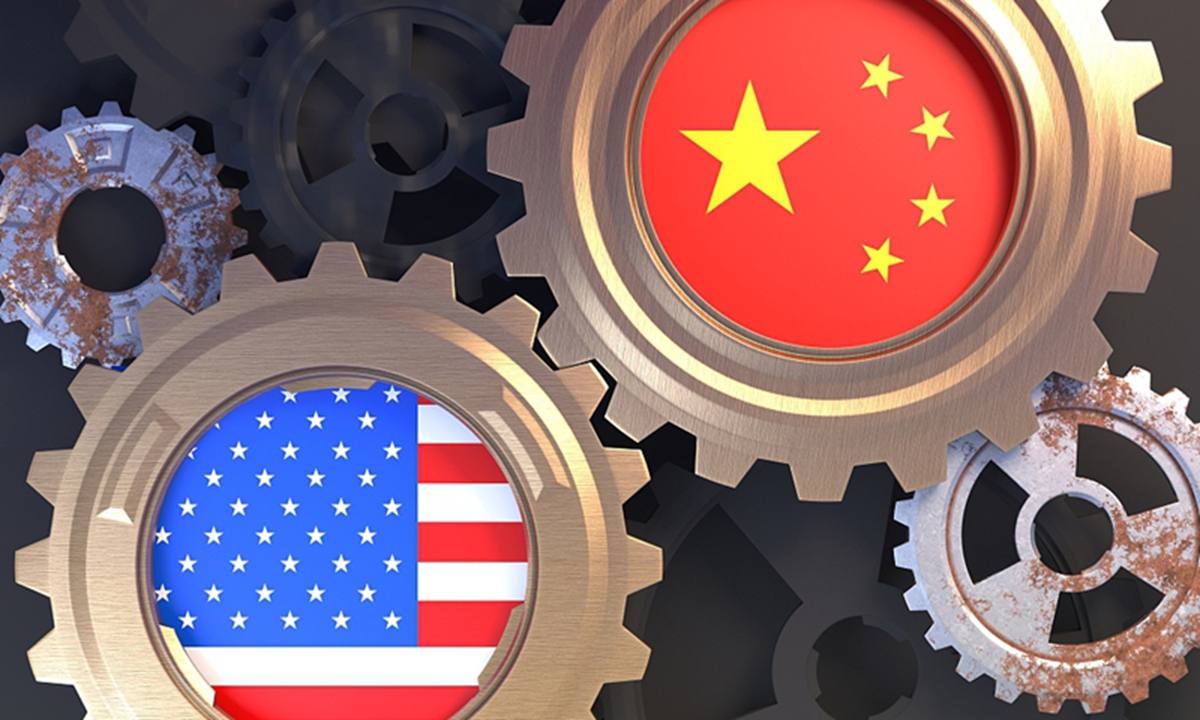
China US
The US labeling China as "non-market-oriented" lacks any basis in international economic or trade rules, and it is completely inconsistent with the facts, Chinese Ministry of Commerce (MOFCOM) spokesperson Gao Feng said at a regular press conference on Thursday.
The statement was made in response to the office of the US Trade Representative (USTR), which on Wednesday labeled China as state-led, with non-market policies and practices, while threatening to pursue new strategies and update its domestic trade tools to deal with China.
"China has not moved to embrace the market-oriented principles on which the WTO and its rules are based, despite the representations that it made when it joined 20 years ago...China has instead retained and expanded its state-led, non-market approach to the economy and trade," USTR Katherine Tai said on Wednesday.
In addressing the USTR's irresponsible remarks, Gao Feng said in response to media questions on Thursday that "the US should make its trade tools conform to the WTO rules as a member state, rather than adopting a different set of practices, in pursuing unilateralism, protectionism and bullying."
"At present, the economic and trade teams of the two sides are maintaining normal communications," the spokesperson said.
The USTR's remarks about pursuing new strategies and updating its domestic trade tools in dealing with China serve as another indication that the tariffs imposed on Chinese goods have proved to be a total failure in gaining an edge against China and are a damaging tool that hurts US companies and consumers as well as normal trade activities between the two major economies, experts said.
Gao Lingyun, an expert at the Chinese Academy of Social Sciences in Beijing, told the Global Times on Wednesday that "the message of the USTR's statement is a reflection that the tariff tool is not working and they want to cancel the tariffs, but there are not yet new things to follow up."
The US tariffs on Chinese goods have added to the US' costs and eventually led US consumers to pay the bill imposed by their own government.
"The US will realize that any attempt to increase its pressure on China will ultimately hurt its own interests," Gao Lingyun said, noting that China maintains an open attitude and hopes that the US will respond correspondingly.
"Many of the US tactics are not aimed at solving the trade issue but at suppressing China and Chinese companies," Bai Ming, deputy director of the International Market Research Institute at the Chinese Academy of International Trade and Economic Cooperation, told the Global Times.
"The US should look in the mirror when talking about breaking WTO rules, because that is what they have been doing," Bai said.
This came less than a month after a WTO arbitration tribunal ruled on January 26 that, because the US failed to implement the WTO ruling, China could impose trade retaliation against the US of $645 million per year. It is the second time China has won a litigation case against the US in the WTO.
In contrast with US claims against China, the success of China's economy over the past 40 years has proved the great success of the reform and opening-up policy, as well as the effective combination of the role of market mechanisms with the function of the government, the MOFCOM said.
This is a very valuable experience for China's economic development.
China and the US share huge common interests, and cooperation is the only correct choice for the two countries, the ministry spokesperson said, noting that this is in line with the fundamental interests of China and the US and the two peoples, but also the common expectations of the international community.
Global Times
